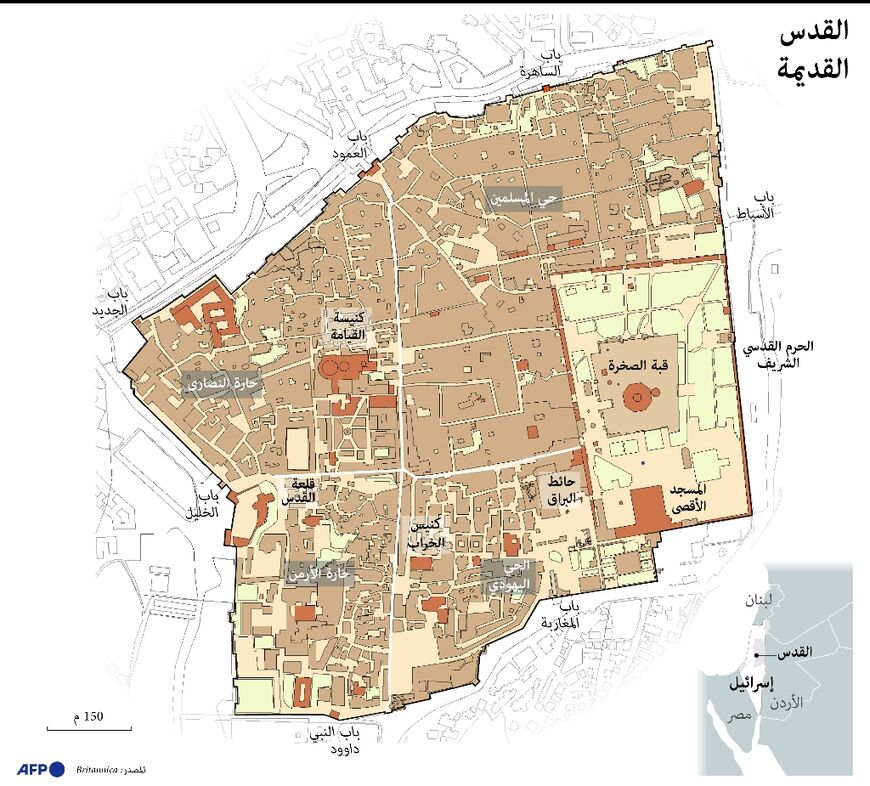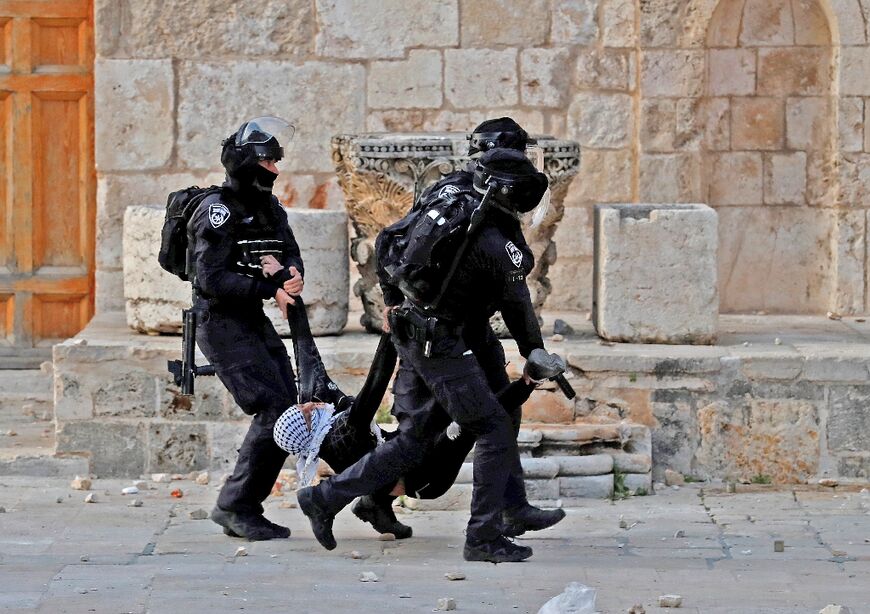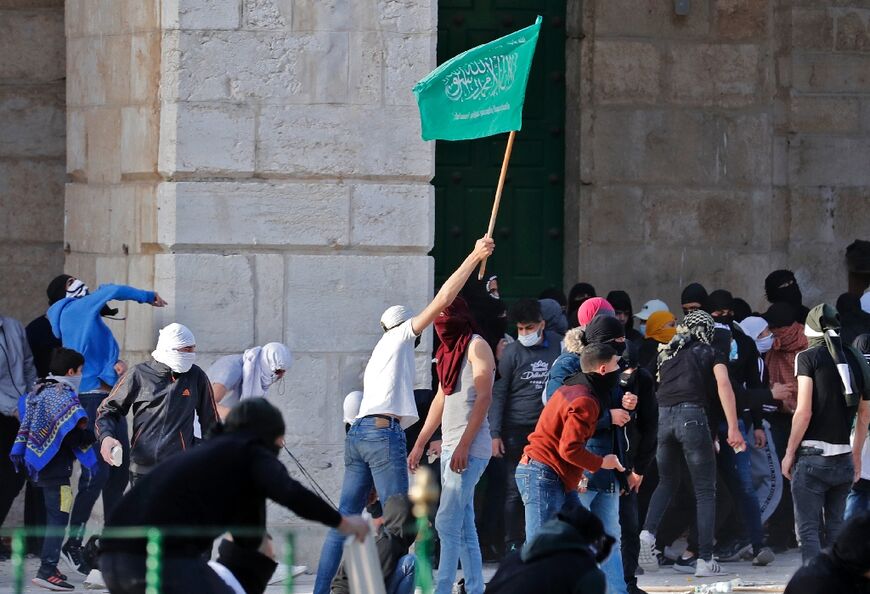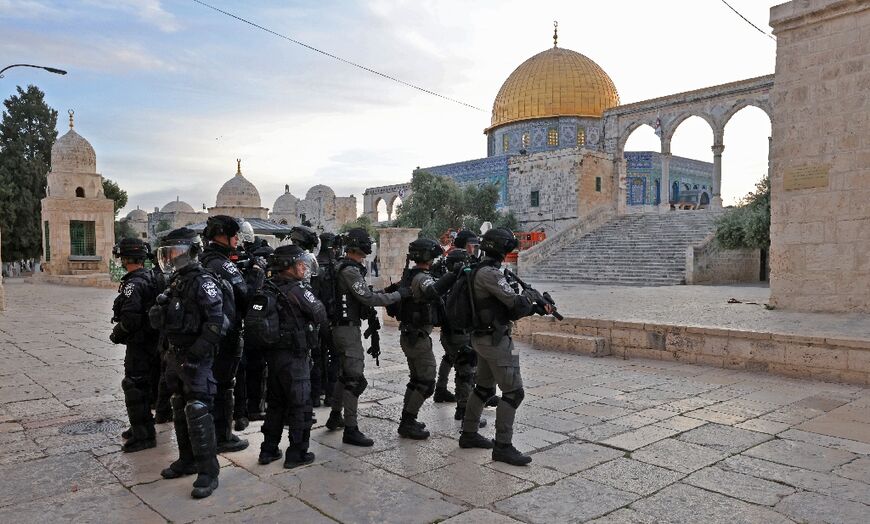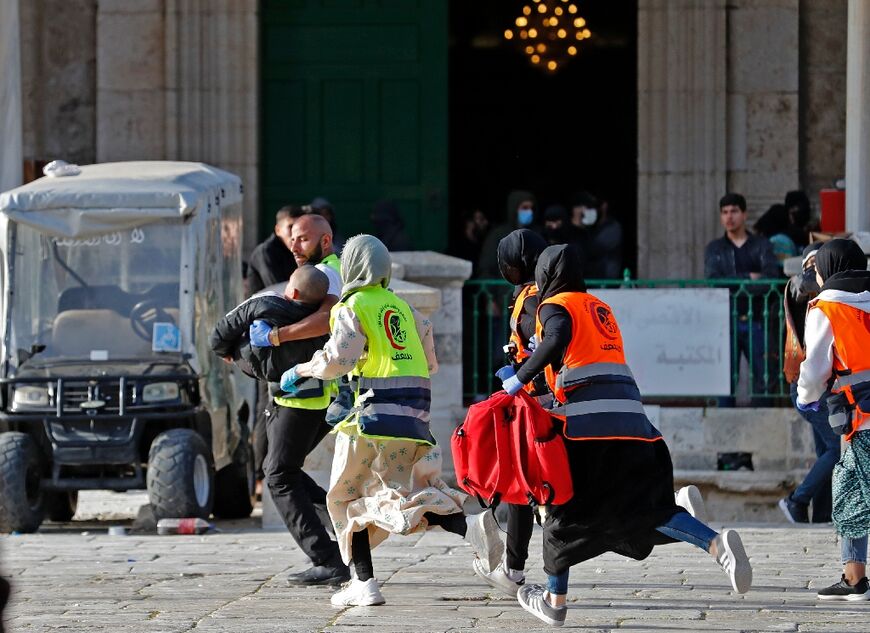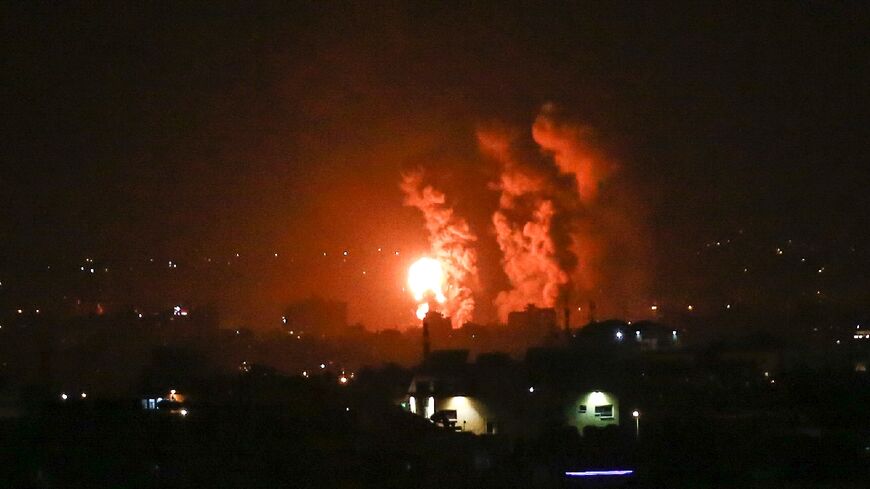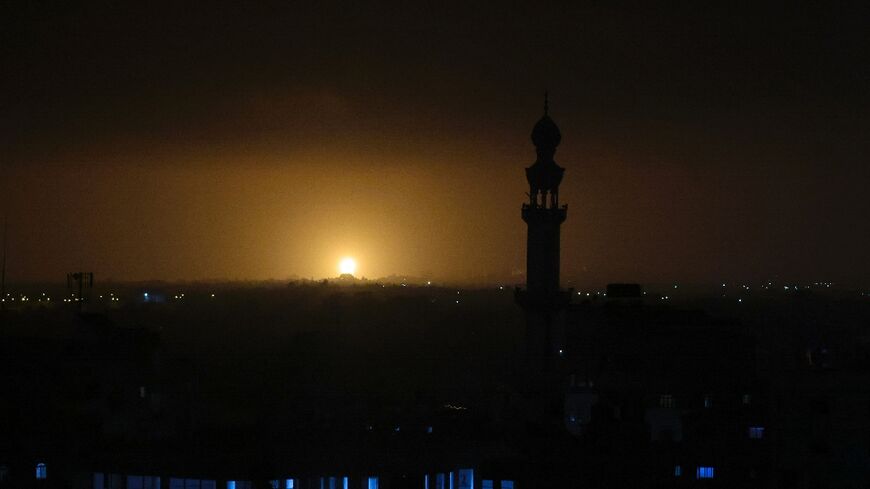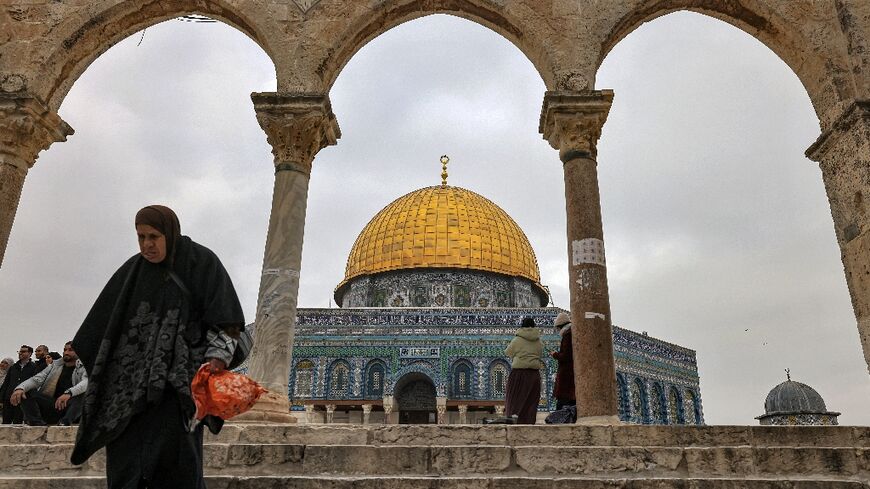New clashes at Jerusalem's Al-Aqsa mosque compound

New clashes between Israeli police and Palestinian protesters broke out on Friday at the flashpoint Al-Aqsa mosque compound in Jerusalem.
The Israeli police stormed the compound and fired teargas and rubber-tipped bullets at stone-throwing Palestinian youths, said an AFP photographer on the scene.
The clashes come after a month of deadly violence, as the Jewish festival of Passover overlaps with the holy Muslim fasting month of Ramadan.
The violence has sparked international fears of a major escalation, a year after similar unrest led to an 11-day war.
At around 4:00 am (0100 GMT), Palestinians began hurling stones towards the Western Wall, considered the holiest site where Jews can pray, the police said.
"Police forces used crowd dispersal means in order to stop the violence," the police said in a statement.
Eleven Palestinians were rushed to hospital, two of them in moderate and serious condition, said the Palestinian Red Crescent.
In the past week, more than 200 people, mostly Palestinians, have been wounded in clashes in and around the Al-Aqsa compound in Israeli-annexed east Jerusalem.
This led to further escalation as Palestinian armed groups fired rockets at Israel from the Gaza Strip.
Israel retaliated with air strikes on Gaza, a blockaded territory with an impoverished population of 2.3 million.
- Status quo -
Friday's clashes come after nearly a month of bloodshed focused on the Al-Aqsa compound, known to Jews as the Temple Mount.
Palestinians have been outraged by repeated visits by Israeli Jews to the site, the third-holiest in Islam and the holiest in Judaism.
By long-standing convention, Jews are allowed to visit under certain conditions but are not allowed to pray there.
Arab ministers meeting on Thursday in neighbouring Jordan said Israel should respect the status quo at the site, which is officially overseen by the kingdom's Islamic affairs ministry.
The ministers condemned "Israeli attacks and violations against worshippers at the Al-Aqsa mosque", calling them "a blatant provocation to the feelings of Muslims everywhere".
US acting Assistant Secretary of State Yael Lempert and senior diplomat Hady Amr visited the region on Thursday.
After meeting them, Israeli Foreign Minister Yair Lapid said Israel was "preserving and will continue to preserve the status quo on the Temple Mount" -- contradicting Palestinian claims.
The escalation has proved a political headache for Israel's Prime Minster Naftali Bennett, himself a right-winger and a key figure in Israel's settlement movement but who leads an ideologically divided coalition government.
Earlier this month the coalition lost its one-seat majority in parliament -- then on Sunday, the Raam party, drawn from the country's Arab minority, suspended its support for the coalition over the Al-Aqsa violence.
- Rocket fire -
Palestinian militants in Gaza and Israeli warplanes exchanged fire Thursday in the biggest escalation in months.
Israel carried out air strikes in central Gaza, hours after a rocket fired by militants hit the garden of a house in southern Israel -- the first such fire to hit Israel since January.
The military said it had hit an underground rocket factory, prompting another volley of rockets from the impoverished territory, run by Islamist movement Hamas.
Hamas spokesman Fawzi Barhoum said on Thursday that the movement was "determined to continue the struggle side by side with the Palestinian people to resist (Israeli) aggression no matter the sacrifices".
The current spike in violence includes four deadly attacks since late March in Israel by Palestinians and Israeli Arabs that claimed 14 lives, mostly civilians.
A total of 23 Palestinians have meanwhile been killed in the violence since March 22, including assailants who targeted Israelis, according to an AFP tally.


